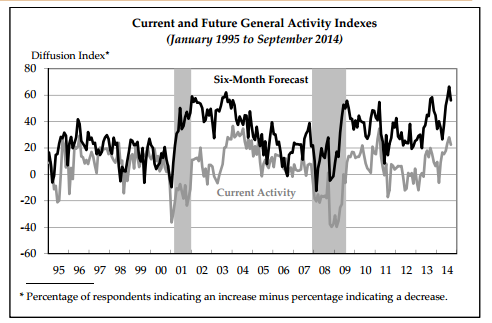Market Data

September 18, 2014
Philadelphia Fed Manufacturing Index Edges Down in September
Written by Sandy Williams
The Philadelphia Fed Manufacturing Business Outlook Survey registered a drop of 5.5 points to 22.5 in September after recording its highest reading since March 2011 at 28.0 in August.
Orders and shipments increased by 1 and 5 points, respectively, while indexes for unfilled orders and delivery times were positive for the month.

The summary from the report reads as follows:
“The September Manufacturing Business Outlook Survey suggests continued expansion of the region’s manufacturing sector. Firms reported continued increase in overall activity, new orders, shipments and employment this month. The survey’s future activity indexes remained at high readings, suggesting continued optimism about manufacturing growth. Firms were more optimistic about employment increases over the next six months.”







